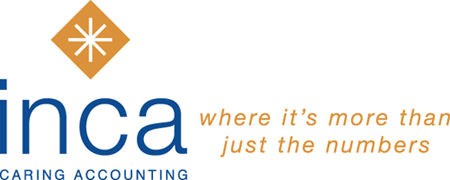 This is a question we’re regularly asked by business owners.
This is a question we’re regularly asked by business owners.
If you’re a company director running your own business, and you’re thinking about acquiring a car, you basically have two choices: You can either select to take money out of the business in order to fund a private purchase or a lease contract, or you can choose to have your company purchase or lease a car for you to use.
It’s a complex area, and what’s best for you will depend on your individual circumstances. Each option has different tax implications – for you personally, and for your business.
-
Acquiring a car privately using funds from your limited company
As a business owner and company director, you can opt to pay yourself a dividend, and use this money to privately purchase or lease a car. If you select this route, you will be able to reimburse yourself for any business miles you undertake at an approved rate set by HMRC – currently £0.45p per mile for the first 10k business miles in a year, £0.25p for additional miles – plus an extra 5p per passenger per mile for approved passengers.
What are the tax implications?
-
Personal tax liability
Recent changes to the way dividends are taxed mean you’ll be personally liable for tax on any dividend you take over £5k. Tax will be charged at either 7% or 32.5%, depending on whether you’re a basic or higher rate tax payer. For more information on tax on dividends click here.
-
Company tax liability
Before you can draw a dividend, your company will have to pay 20% Corporation Tax on profits.
-
Acquiring a car through your limited company
Because your limited company is a separate legal entity, it can own assets in its own right. This means you can use your business to purchase (or lease) a car on your behalf.
What are the tax implications?
-
Personal tax liability
If your company provides you with a car for private as well as business use, HMRC considers this to be ‘benefit in kind’. As such, the value of the benefit will be added onto your annual income and liable for tax based on your personal situation.
To work out the value of the benefit in kind charge, HMRC takes two factors into account – the original list price of the vehicle, including the original list price of any accessories, and the vehicle’s CO2 emissions. The charge is calculated by applying a percentage figure (the appropriate percentage) to the list price of the car. The fuel type of the car and its CO2 emissions determine the appropriate percentage.
The higher the original list price of the car you choose, and the higher its CO2 emissions therefore, the greater the benefit in kind / notional additional salary HMRC will deem you to have earned – and the more tax you will have to pay. For more information on calculating car charges, see HMRCs ready reckoner here.
How many – or how few – non-business miles you clock up won’t make any difference to how much you are charged; the only way you can avoid paying personal tax is if you only use the car for business and keep it at the business premises overnight.
-
Company tax liability
Your company will be liable for Employers NI on the additional notional salary you are deemed to have earned – currently charged at a rate of 13.8%. On the other hand, the taxable profit of your business will be reduced because the running costs of your car will be paid for by your company out of pre Corporation Tax profits.
-
Company tax relief opportunities
There are opportunities for tax relief depending on whether your company car is purchased or leased.
- Purchased: Your company can claim an annual writing down allowance based on a percentage of the cost of the car and the vehicle’s CO2 emissions. The allowance is currently 18% for cars with emissions in excess of 75g/km, and 8% for cars over 130g/km. If you buy a new car with CO2 emissions of 75g/km or less, you can claim the full cost of the car as an expense in the year that it’s bought. If your company is VAT registered, you can also claim VAT on the purchase price – so long as there is zero personal use.
- Leased: If your company leases a car, it can claim corporation tax relief on the full annual lease payment. If your company is VAT registered, you can also claim 50% of the VAT on the lease payments – 100% if there is zero personal use.
As you can see, company cars are a complex area – and we haven’t even got started on the rules around fuel here! The only truly accurate way to determine which is the most tax-efficient way for an individual to acquire a car is to look at their personal situation in detail, and make a calculation based on all the relevant factors.
Are you considering acquiring a car through your business?
Let Us Calculate the Most Tax-Efficient Option for You!
If you’re considering acquiring a car through your limited company, make sure you talk to Inca first. We can review your position in detail, calculate your options and recommend the most tax-efficient route for you from as little as £349 (excluding VAT) – a very small price to pay compared to making the wrong decision!
Call us now on 01235 868888 and let us do the calculation for you!



